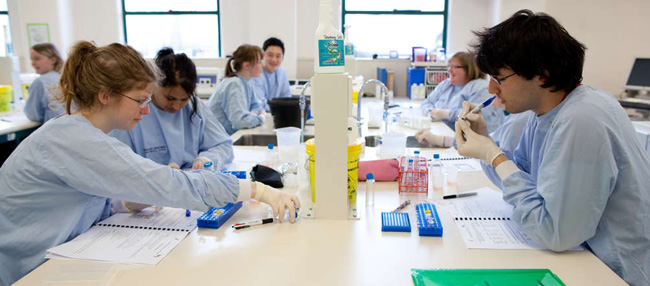 New Otago research has found no benefit to prospective medical students using expensive courses to pass selection tests.
New Otago research has found no benefit to prospective medical students using expensive courses to pass selection tests.
An Otago father and son research team have determined that companies charging up to $2000 to help prospective medical students pass a selection test do not deliver on their promises.
Christchurch's Associate Dean, Medical Education, Professor Tim Wilkinson and his son Tom, a Fifth Year Medical student, recently published a paper describing tihe success of pre-test services in the Medical Education journal.
They found no difference between those who used the companies and those who did not.
Professor Wilkinson says the Undergraduate Medicine and Health Sciences Admissions Test (UMAT) contributes to selection of medical students.
"We found a lot of people score better the second time with or without a course."
Prospective students are given access to a website with lots of practice questions, strategies for the exam and online networking with other students.
The Wilkinsons asked more than 200 students who sat the UMAT twice across two consecutive years to complete an online survey.
"It's widely used in Australia and NZ but is only a few hours long so looms large in students' minds. It's high stakes. A significant industry has grown up purporting to help people train for this test,'' Professor Wilkinson says.
"We found a lot of people score better the second time with or without a course. The people who sat a course are, of course, likely to attribute their improvement to the benefit of the course. There's also regression to the mean where lower scoring people are likely to do better a second time, purely on the basis of chance. Both these factors will create a large number of anecdotes among students claiming the preparation courses are good. It's a bit like "my car must be better than yours because I spent more money on it" but the implication of our research is that there isn't a bias related to taking an expensive course and students could save a lot of money by not taking one.''
He says the project was his son's idea and the medical student analysed the data and wrote it up.
Tom Wilkinson says “doing research within the family actually worked really well - we both already knew where each other's strengths lay, and staying in touch throughout the project was incredibly easy”.
